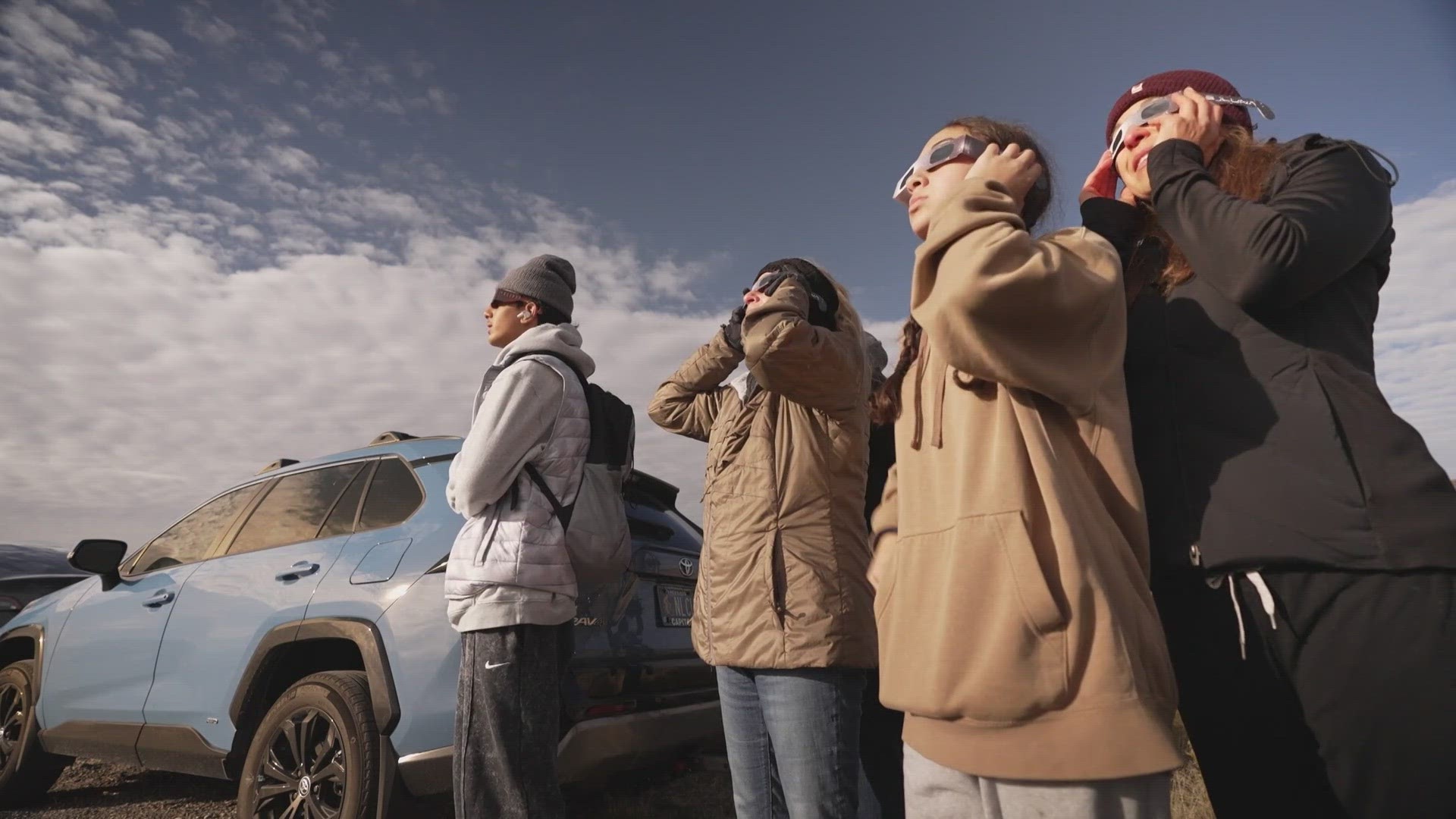SEATTLE — Millions of Americans will wake up Saturday morning to see a rare "ring of fire" solar eclipse.
The celestial event is a type of solar eclipse called an annular eclipse when the moon passes in front of the sun and creates the appearance of an illuminated ring in the sky. The National Aeronautics and Space Administration (NASA) said those in the path of annularity will be able to view a full "ring of fire" effect.
Patrick Koehn, NASA heliophysicist, said the eclipse will start around 8:10 a.m. PST in Washington. The eclipse will last about two hours in Washington.
The Northwest states will be among the first states in the country to see the eclipse, Koehn said.
The annular solar eclipse's path will pass through much of the western and southwestern U.S., including major U.S. cities like Eugene, Oregon, Albuquerque, New Mexico and San Antonio, Texas.
When the eclipse begins and how long it'll last depends on where you are in reference to the path of annularity. For some, the eclipse could be as brief as 30 seconds or as long as five minutes.
While those outside the path of annularity might not get to see the rare "ring of fire," many will be able to witness the moon partially block the sun.
For more information on the specific cities that are in the path of annularity, visit NASA's Where and When page.
The last time the U.S. saw an annular eclipse was in May 2012. The next total solar eclipse will cross over North America on April 8, 2024. , according to NASA.
Here's how to watch
KING 5 will be streaming live coverage of the eclipse beginning at 9 a.m. Saturday. You can watch the live stream on KING 5+. The live stream will also be embedded in the story, so check back for updates.
NASA has a list of solar eclipse events across the country that you can see here.
The Pierce College Science Dome is having its solar eclipse event in Lakewood on Saturday morning. The organizers said it will have proper equipment to safely view the eclipse.
It's not required to pre-reserve spots, but the event did ask for RSVPs for planning purposes.
Here are alternative ways to watch the celestial event.
With any solar eclipse, it's important to remember safety measures for your eyes, if you plan on watching in person.
Because the sun is never fully covered during an annular eclipse, it's not safe to directly look at the sun. Eclipse glasses, if you have any on hand, are recommended to protect your eyes. Koehn said you can pick up glasses at libraries and various locations. The frames for eclipse glasses are typically made out of paper, while the lenses are made using a special material, Koehn said.

